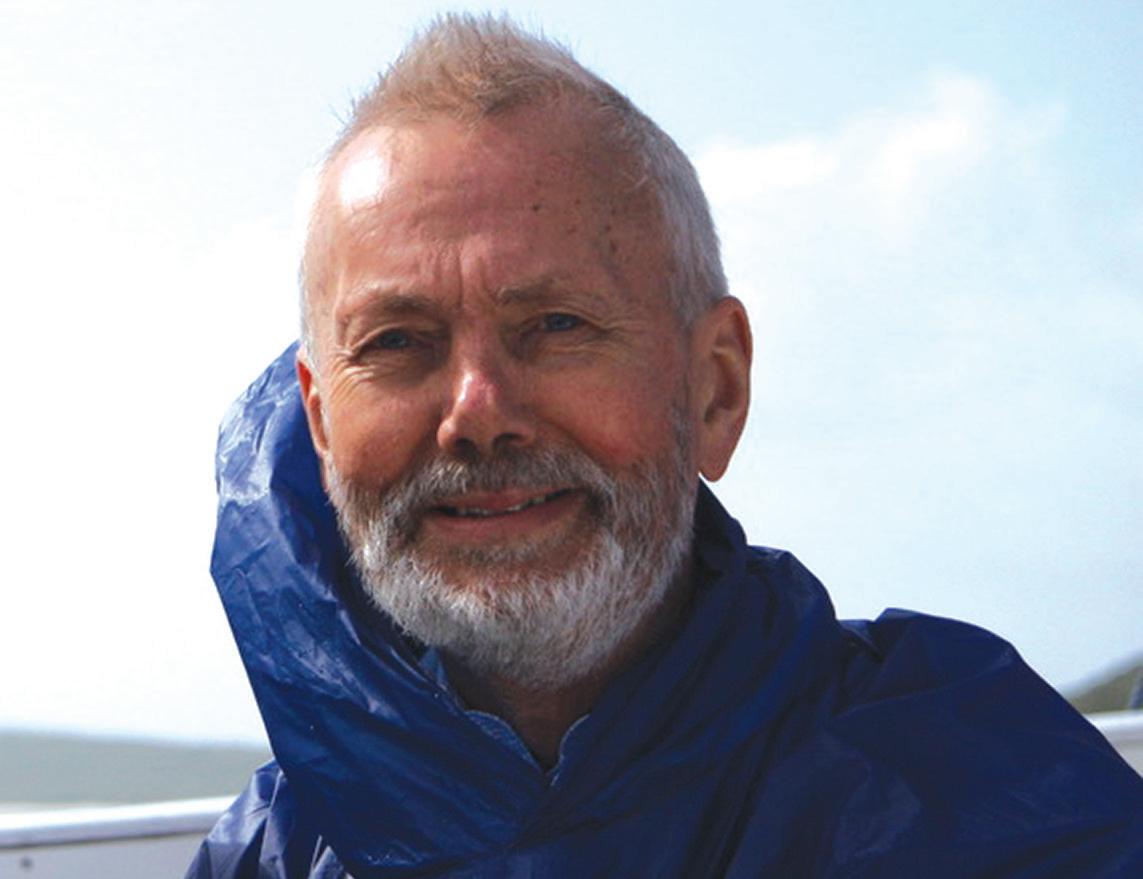
3 minute read
Alumni correspondence – Memories of Dr Stuart Warren
Alumni Correspondence
When Dr Stuart Warren died in March, we received an outpouring of alumni reminiscences, which can be viewed on the Department website at www.ch.cam.ac.uk/alumni/alumni-remember-drstuart-warren. We also recently received this account from Philip Evans (Churchill 1967).
Dr Stuart Warren
Dr Stuart Warren – a few memories
My own memories of Stuart Warren are the oldest – or perhaps more politely to me – the first of those I have read. Stuart’s impact on the undergraduate chemists of the late ‘60s was extraordinary: he was both the lightning and the thunder that followed !
Context is needed: 1967, when I came up, was the start of an extraordinary time in higher education. Bob Dylan’s songs, the war in Vietnam, the Paris students of May ’68 are but symptoms of a heady time of a societal re-alignment nationally and a sort of democratisation in education. There was Woodstock and free love….
Well, no, not really. In the late ‘60s many of the scientists were, boringly, worried about examination results and whether the SRC grants we wanted for PhDs would be forthcoming .
In 1967, the science/maths lectures were almost uniformly bad: the maths dept, who gave the courses for scientists, were the worst; but the chemistry dept were only marginally better. By early ’68, some enterprising Nat Sci students (no Natskis yet) had organised a questionnaire re lecturing; there was a staff/student committee set up via real elections. I was one of these student revolutionaries elected – a more unlikely one you could never find.
And that is when Stuart arrived. It would have been ’68 or more probably ’69; dept records will tell. Not only were his lectures meticulously prepared with clear handouts, he was also a lecturer of real gifts: always a clarity and empathy with us in front of him, trying our best, being but two aspects. He was more than a breath of fresh air – within a few lectures he had established ‘how it could and should be done’. In that sense he was indeed a revolutionary and, like the best of that ilk, changed the future course of Cambridge chemistry teaching forever.
He also organised group tutorials. As I recall these were in his office, with discussions, debates, questions; and all this with coffee, cakes and biscuits. In my mind’s eye the coffee was brewed in a fume cupboard in the corner of the office. Surely not? The mind is playing tricks perhaps, but I like my mental picture. Colourful cravats, treating us as the intelligent adults that we were, a seriousness of purpose, lightly displayed. It was an introduction of how to be a serious scientist – a lesson many of us never forgot.
We of the ‘class of ’67’ etc. owe him a great deal. I was greatly saddened to learn of his death, as all the above makes clear.
One further personal thought if I may : I would also like to name Dudley Williams (organic chemist, Churchill) and Alan Sharpe (inorganic chemist, Jesus) who also took pains in their teaching and who were important to me in my growth both as a chemist and as a person. But it was half a century ago; they’re all gone now.
The Stuart Warren PhD Studentship at Churchill College
Churchill College, where Stuart was a Teaching Fellow, is joining with the Department of Chemistry to fund a PhD studentship in Stuart’s memory. Master of Churchill, Professor Dame Athene Donald FRS, writes : “With your help we aim to provide an opportunity for an outstanding PhD student from sub-Saharan Africa to undertake research in chemistry at Churchill College. “
The studentship would fully fund a student from Angola, Botswana, Eswatini, Lesotho, Malawi, Mozambique, Namibia, South Africa, Zambia or Zimbabwe to study in Cambridge for four years. The cost of a one-off studentship is £200,000, which represents annual costs of £50,000 to cover £29,000 in overseas PhD student fees and £21,000 in living expenses. Alternatively, if the fundraising is successful, we will aim to raise £625,000 for a fully endowed studentship, which would benefit further students in the future.










